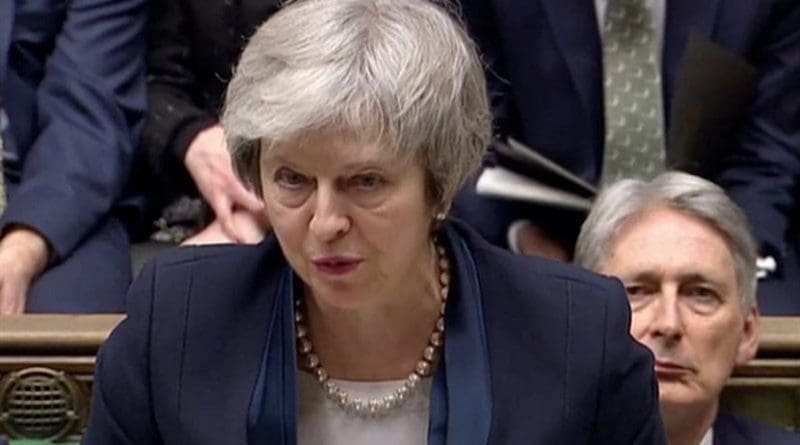Local Elections Offer May Some Brexit Respite
By EurActiv
By Benjamin Fox
(EurActiv) — The UK’s local elections on Thursday (2 May) will offer a test of the damage done to Theresa May’s Conservative party by her failure to deliver the country’s exit from the European Union.
More than 8,000 seats are up for grabs on 259 local councils in England and Northern Ireland, as well as six mayoral posts. No elections are taking place in Scotland, Wales or London.
The Conservatives are likely to suffer heavy losses – of between 500 and 800 councillors –in the local polls but will expect to perform far better than in the European elections due on May 23. The main beneficiaries are likely to be the Liberal Democrat and Labour parties.
Although a large number of Tory activists say they will vote for Nigel Farage’s Brexit party in the European Parliament ballot, the party, currently polling at around 30% for the EU poll, will not field candidates in the municipal elections. Nor is the centrist Change UK party founded by former Labour and Conservative MPs.
The dismissal of Defence Secretary Gavin Williamson on Wednesday and local elections have pushed Brexit off the top of the political agenda, but only temporarily.
On Thursday, the government confirmed that it will not bring the Withdrawal Agreement back before MPs next week, reducing the chances of a vote being held in time for the UK to avoid holding the European elections on 23 May in case the deal is passed.
Andrea Leadsom, the minister in charge of parliamentary business, refused to say when the Brexit deal would be brought back to Parliament.
In the meantime, talks between May’s team and Jeremy Corbyn’s Labour party have continued, with both sides downplaying talk that they had become deadlocked, although Corbyn’s spokesman said it was unlikely to have an agreement before the European elections.
May’s office has earmarked a cross-party meeting next Tuesday (7 May) as being crucial to whether any agreement can be struck.
Appearing before the chairs of the UK parliament’s select committees on Wednesday, May sought to play down the differences between Labour’s position and her Withdrawal Agreement, particularly on future trade relations with the EU.
“There are differences on issues but on many of the key areas – particularly on the withdrawal agreement – there is common ground,” she said.
May also hinted she was ready to move towards Labour’s demand for a permanent EU-UK customs union.
“Various terms are used in relation to customs. Sometimes people use different terms to mean the same thing, sometimes it is meaning different approaches,” she told MPs, adding that on post-Brexit trade Labour and the government had “very similar” objectives.
A number of May’s ministers have hinted that they would oppose a customs union arrangement, though others now believe that securing Labour votes is the only way to get a Brexit deal across the line.
For its part, Labour has shied away from demanding a second referendum on Brexit in any circumstances. Earlier this week the party’s ruling national executive committee (NEC), announced that its manifesto for the European election would be “fully in line” with its longstanding policy agreed at its annual conference last September.
The opposition party’s ‘alternative plan’ for Brexit is based around staying in a customs union with the EU. However, in the event of failing to obtain that, or a general election, Labour would support a new referendum on EU membership.

